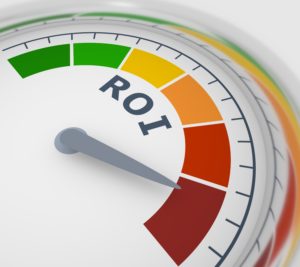In the age of energy-conscious business, many fuel diesel fuel users are asking the same question: Do I have bio in my diesel fuel?
The simple answer: yes.
Do I Have Bio in My Diesel Fuel? Biodiesel vs. Diesel
Biodiesel is a biodegradable alternative fuel created from modified oils and diesel fuel. The biggest benefit is that it’s a more renewable fuel source. It’s essentially a blended diesel, which includes a portion of biofuels mixed with almost all diesel fuel in the country. A B20, for example, would have 20% of biofuels and the remaining 80% would be normal diesel.
The production of biodiesel has increased tremendously. In 2005, around 25 million gallons were produced, but in 2013, that amount jumped up to 1.7 billion gallons. Much of the increase comes from the tax incentives and mandated use of biodiesel fuel.
Because it’s a more renewable resource, it’s better for the environment. Additionally, the renewable resources that go into biodiesel can be grown in the U.S., reducing our reliance on foreign oils.
Biodiesel can also reduce tailpipe emissions, including soot and air toxics. According to the EPA, biodiesel emits around 11% less carbon monoxide and about 10% less particulate matter than diesel. Another study performed by the Department of Energy and Agriculture showed that biodiesel reduces net carbon dioxide by about 78%.
Not only is it non-toxic and biodegradable, but it can also improve a driver’s fuel economy. Using biodiesel improves fuel economy by an estimated 20% to 40%.The addition of biofuels also improves the lubricity rating of diesel.
Renewable Fuel Standard
One of the reasons biodiesel is included in your regular diesel is the Renewable Fuel Standard. The program was created under the Energy Policy Act of 2005, amending the Clean Air Act. In 2007, the Energy Independence and Security Act further amended the Clean Air Act by expanding the Renewable Fuel Standard and implementing a program that brought in the U.S. Department of Agriculture and the Department of Energy.
The Renewable Fuel Standard requires that a certain volume of renewable fuel must replace or reduce the quantity of petroleum-based transportation fuel, heating oil, and jet fuel. Under the Renewable Fuel Standard, there are four renewable fuel categories:
- Biomass-based diesel
- Cellulosic biofuel
- Advanced biofuel
- Total renewable fuel
With the enactment of the Energy Independence and Security Act, the Renewable Fuel Standard was significantly increased. It also included these key changes impacting your diesel fuel today:
- Boosted long-term goals to 36 billion gallons of renewable fuel
- Extended yearly volume requirements out to 2022
- Added clear definitions for renewable fuels to qualify, including those for renewable biomass and greenhouse gas emissions
- Created grandfathering allowances for volume from specific existing facilities
- Included specific waiver authorities.
In order for a fuel supplier, importer, or refiner to qualify under the Renewable Fuel Standard, the EPA has to determine if the fuel in question qualifies under the statutes and regulations of the Standard. Along with other regulations, the fuel must achieve a reduction in greenhouse gas emissions, compared to the petroleum baseline of 2005. Aside from that, the following regulations must be met:
- Biomass-based diesel has to meet 50% lifecycle GHG reduction.
- Cellulosic biofuel has to be produced from cellulose, hemicellulose, or lignin and must meet a 60% lifecycle greenhouse gas reduction.
- Advanced biofuel can be produced from qualifying renewable biomass, with the exception of corn starch, and must meet a 50% greenhouse gas reduction.
- Renewable or conventional fuel typically refers to ethanol derived from corn starch and has to meet a 20% lifecycle greenhouse gas reduction threshold.
A large part of the basics of the program compliance are Renewable Volume Obligations (RVOs). These are credits that a party can receive from the EPA and are calculated and established every year through projections of the Clean Air Act and fuel production.
Biodiesel Tax Credit
Another huge advantage of having bio in your diesel fuel is the biodiesel tax credit. This $1/gal tax credit for federal biomass-based diesel blenders has been extended through 2022. This makes biofuel more price competitive with conventional diesel. It relies on Renewable Identification Numbers (RINs).
RINs are credits that parties can use to show their compliance with the standard. A party must have enough RINs for each category to show this compliance with the annual standard. These RINs can narrow your premium. For example, prices for D4 biomass-based RINs were at 40cts/credit.
During the week of Jan. 2, 2020, biodiesel jumped to $3.706/gal, a full $1.67 above the average for on-road diesel, which usually sits around $2.036/gal. With the $1 tax credit, the premium shrinks so during that week there was actually only a 7cts difference.
This tax credit has lapsed six times since 2004. Despite its troubled history, Congress decided to enact legislation in 2018 that retroactively restored the credit for 2017. However, this didn’t address the 2018 production of fuel and didn’t offer anything for the industries that had lobbied so hard for a multi-year extension of the tax credit.
Much of the problem with the tax credit was due to divergent politics and energy policy priorities. However, the newly enacted law will maintain the tax credit at the current level through 2022.
Our Commitment to Renewable Fuel Options
At Diversified, we are passionate about providing the latest in environmentally conscious and renewable energy options. You can learn more about our fuel performance treatments and other products and services, here.








